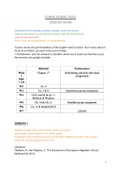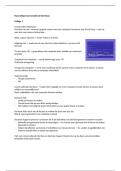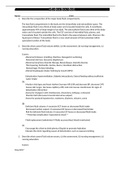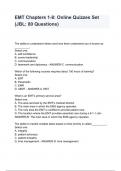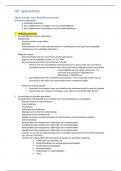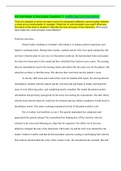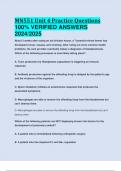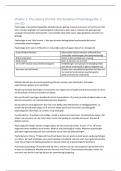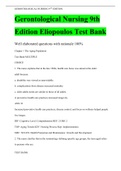Samenvatting
Summary: European Economics MICRO: Seminars + book chapters
A complete overview of all my notes taken during the "European Economics: Micro" course: SEMINARS + A summary of the book chapters we had to study for the course. Also: there are some answers to exercises from the "The Core Team, The Economy -Economics for a changing world," book. ENGLISH.
[Meer zien]
